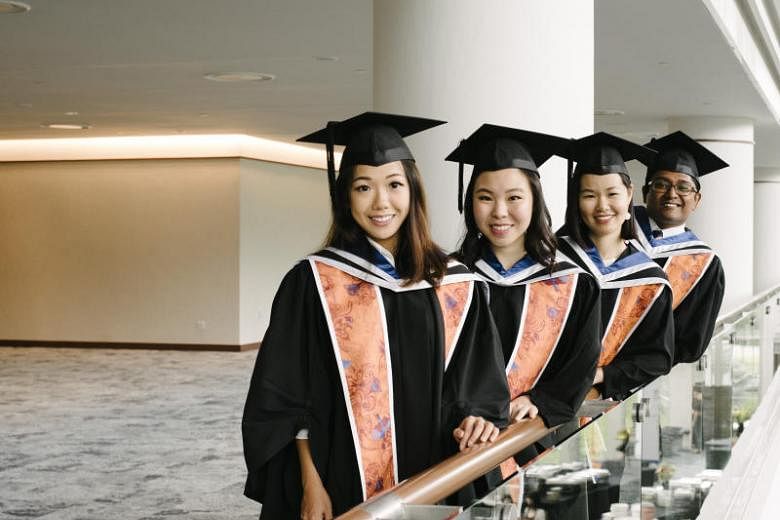SINGAPORE - Ms Lim Chu Hsien straddles the line between ruminating on the curiosities of the mind and body, and facing them head on in medical science.
When Ms Lim, 24, first entered Yale-NUS College, she aspired to be a philosopher. In the next four years, however, she found common ground between this interest and her passion for science in the field of medicine.
Fresh out of her life sciences degree course, Ms Lim will go on to pursue a Doctor of Medicine (MD) programme at Duke-NUS Medical School.
"Going into medicine may have been easier and shorter. However, I would not have acquired my current sensitivity to cultural nuances needed in developing empathy with others," she said.
Ms Lim has had a myriad of experiences, which include a summer spent studying traditional Chinese medicine in Kunming, China and a research stint in Harvard University.
She has published a review paper in the Journal of Developmental Biology on a novel approach to modelling Alzheimer's disease using animals.
Ms Lim is one of the 160 students in Yale-NUS' second graduating class, who received their degrees at a ceremony on Monday (May 28).
The cohort includes the pioneer classes of two programmes - seven students from the double degree programme in law and liberal arts (DDP) jointly offered by Yale-NUS and the National University of Singapore's (NUS) Faculty of Law, as well as three students from the concurrent degree programme offered by Yale-NUS and the Lee Kuan Yew School of Public Policy.
Yale-NUS is an autonomous college of NUS and Singapore's first liberal arts college. It was set up in 2011 and admitted its first batch of students in 2013.
Job placement statistics for the latest batch of graduates are currently unavailable, but a number of them have secured jobs in both private and public organisations, such as Facebook, Visa, KPMG and the Economic Development Board, according to Yale-NUS.
Students told The Straits Times how their liberal arts education helped them find meaning in charting their path towards a professional career.
Ms Amelia Chew, 24, will not be starting work in a law firm, despite obtaining a law degree under the DDP. She will be making a foray into the legal technology sector at Luminance, an artificial intelligence platform for the legal profession.
She acknowledged it was a relatively unconventional decision for law degree holders. She attributes this decision in large part to her breadth of work experience. She had interned at a legal technology start-up while in school and also at law firms where she saw how young lawyers struggled with grunt work early in their career and became burnt out as a result.
She said these experiences exposed her to different opportunities and various ways that she could apply her knowledge to problem solving.
"Law is not something that is understood in isolation or practised in isolation...the biggest challenge I faced during my school years was trying to overcome the preconceived notion that as a law graduate, the natural thing to do is law," she added.
Guest speaker at the graduation ceremony, Professor Kishore Mahbubani,said there was a widening gap between the arts and sciences. The professor in practice of public policy at NUS emphasised the need to bridge this gap.
"Amazing developments are taking place in the sciences. Artificial intelligence could improve our lives significantly. Yet it does pose dangers... Can you use your knowledge of both arts and sciences to find a solution to this challenging problem?"

